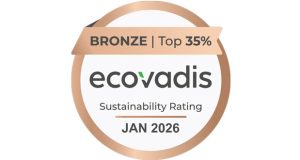SUPPORTING WELLBEING THROUGH SUSTAINABLE WATER
As of March 2025, 41 per cent of workers in Great Britain either worked exclusively from home or followed a hybrid model. With more employees choosing flexible arrangements, management teams are now rethinking the role of the office as not only a place to work, but as a space that fosters collaboration, wellbeing and retention.
Providing high-quality drinking water in the workplace may seem like a small gesture, but it can have a powerful impact on both employee wellbeing and your ESG credentials. Here’s how:
- Boosts hydration and productivity: Easy access to clean, filtered water encourages better hydration, helping to reduce fatigue, improve concentration, and enhance cognitive performance.
- Supports infection control: Touch-free dispensers reduce reliance on shared surfaces, an essential feature in healthcare, education, and high-traffic environments, while antimicrobial additives in the touchpad and key components of the water path inhibit the growth of bacteria.
- Promotes a sustainability culture: Encouraging reusable bottles and removing single-use plastics signals care for both people and the planet, reinforcing shared values.
- Improves office appeal: For workers facing high living costs or limited access to nutritious food at home, workplace refreshments, including filtered water, add comfort and convenience, while supporting social interaction.
Given that personnel costs often make up 70 per cent or more of an organisation’s operating expenses, investing in measures that support performance and satisfaction, like sustainable hydration, can yield meaningful returns. It’s not just about water; it’s about creating a space people want to return to.
TIME TO STEP UP
In a recent survey of 227 UK-based facilities managers, 72 per cent said reducing single-use plastic waste is part of their sustainability strategy while 93 per cent agreed the industry could and should do more.
The pandemic disrupted sustainability progress. Good habits around reducing plastic waste were lost, and momentum stalled. Now, as we define the modern workplace, facilities managers have a unique opportunity, and responsibility, to reset.
By implementing plastic-free, bottle-free water systems, organisations can:
- Visibly relaunch environmental commitments.
- Support occupant wellbeing through safe, clean hydration.
- Re-engage staff, students, and stakeholders around shared ESG goals.
We know the full extent of the environmental and health costs of plastic. Reducing single-use plastic isn’t a seasonal campaign; it must become a year-round priority.
This is why sustainable hydration is more than just an amenity, it becomes a powerful symbol of what the workplace stands for.
The time to step up is now.





